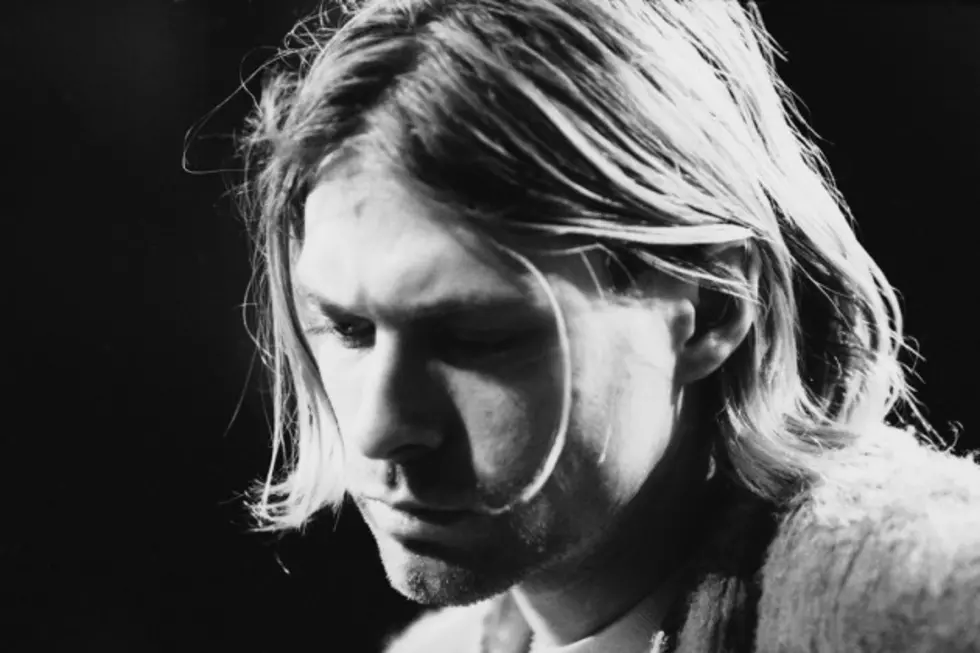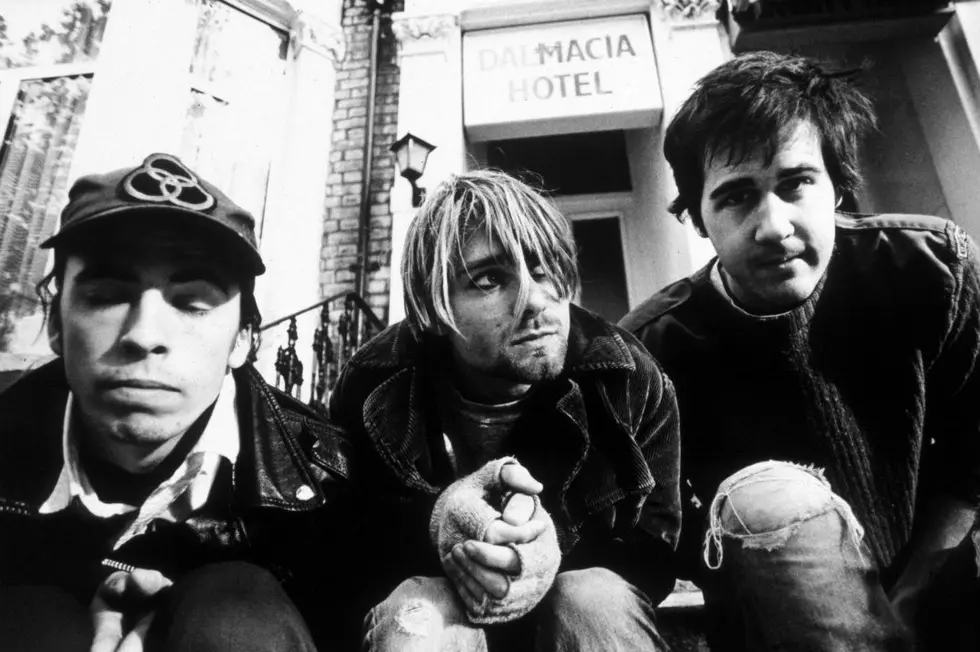
21 Years Ago: Kurt Cobain Dead at 27
One of rock's brightest young talents was extinguished on April 5, 1994, when Kurt Cobain's life ended with an act of horrific violence that investigators later deemed a suicide.
The Nirvana frontman's body was found on April 8, when an electrician discovered his corpse, along with a shotgun and a handwritten note, after arriving at Cobain's Seattle home to install security lighting. Although reports of his death circulated quickly, the Seattle police department held off on issuing an official confirmation until April 9, when the King County medical examiner's office was able to obtain a conclusive fingerprint match.
"An autopsy has shown Kurt Cobain died of a shotgun wound to the head," read part of the examiner's report. "At this time the wound appears to be self-inflicted."
The news of Cobain's death set the music world reeling, but his physical and emotional troubles -- and his drug problems -- had long been a matter of public record. Although he insisted he'd cleaned up his act following the birth of his daughter Frances Bean, he and his wife, Hole leader Courtney Love, were dogged by rumors that they continued to lead a dangerous lifestyle -- rumors that only intensified after Cobain was hospitalized in March of 1994 following an overdose.
Cobain's mother, Wendy O'Connor, publicly shared how her worst fears were realized regarding her son's long-term health, telling reporters after his death that she'd urged him "not to join that stupid club" of famous musicians who died at the age of 27.
At the time of Cobain's passing, Nirvana's third studio LP, In Utero, was only a few months old -- and even though it arrived as one of the most highly anticipated new records of 1993, he made no secret of his ambivalence toward the music industry in general. "I do not want to have a long career if I have to put up with the same stuff that I'm putting up with," he told the New York Times following its release. "I'm trying it one last time, and if it's more of a pleasant year for us, then fine, we'll have a career. But I'm not going to subject myself to being stuck in an apartment building for the next 10 years and being afraid to go outside of my house. It's not worth it."
Those sentiments were echoed in the note found with Cobain's body. "I haven't felt the excitement for so many years," it read in part. "I feel guilty beyond words about these things [...] When we are backstage and the lights go out and the manic roar of the crowd begins, it doesn't affect me [...] The fact is, I can't fool you, any of you. It simply isn't fair to you or to me [...] The worst crime I can think of would be to (trick) people by faking it and pretending as if I were having 100 percent fun."
Whatever his internal issues may have been, it's difficult to overestimate Cobain's impact. Record executive Gary Gersh, who brokered the deal that brought Nirvana to the majors for their smash Nevermind LP, sagely predicted, "When people look back over the years at the industry, I believe there will be a pre-Nirvana business and a post-Nirvana business. The group's Nevermind album will be looked back on as a seminal record in the history of rock."
See Nirvana and Other Rockers in the Top 100 Albums of the '90s
More From 103.7 The Loon










